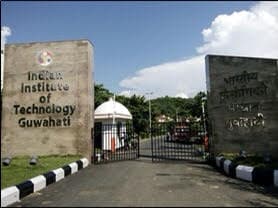IIT Guwahati researchers 2020: Super show of how carbohydrates are transported

IIT Guwahati researchers have shown how some specialised protein molecules found on the cell membranes of all biological cells carry carbohydrate molecules into cells from outside.
The IIT Guwahati researchers have studied specific protein molecules called ABC transporters, present in bacterial cell membranes and have shown that these transporters are selective about the type of carbohydrates they transport into cells.


The work has been published in The FEBS Journal and the paper has been authored by Dr. Shankar Prasad Kanaujia and his Ph.D. students, Ms. Monika Chandravanshi and Ms. Prerana Gogoi.
Any living cell needs glucose for life-sustaining energy.
Glucose in turn is obtained by the breakdown of carbohydrates – table sugar (sucrose), a simple carbohydrate, and starch, a complex carbohydrate, are some sources of glucose in the cell.

Such carbohydrates must be taken into the cell, and broken down inside the cell into glucose.
These carbohydrates are large molecules that cannot penetrate the membranes that surround the cell by themselves and depend on some special helpers or transporting molecules to carry them across.

One of the largest classes of transporting molecules is the ATP-Binding Cassette (ABC) transporter, which is widespread in all forms of life”, said Dr. Kanaujia.

Table sugar and starch are only two of the numerous carbohydrates that are used by the cells, and they have to be preferentially taken into the cell.
While ABC transporters have been known for a long time, it remains unknown if these carbohydrate-ferries have preference for specific carbohydrates over others.

Many of the carbohydrates have similar structures and components, and differ in a specific type of bond or linkage, called glycosidic bonds, said IIT Guwahati researchers.
There are two types of glycosidic bonds – alpha and beta. We did not know if the ABC transporters have preference for any specific type of glycosidic bond, they said.
IIT Guwahati researchers studied the ABC Transport system of a bacterium called Thermus thermophilus, that are present in hot springs.
In order to survive the extreme environment, the bacterium utilizes many kinds of carbohydrates for energy.
Is the ABC transport system in this bacterium inherently selective to specific carbohydrates or does it have no such preference? This is the question the IIT Guwahati researchers have answered in their research.
Based on the preliminary analysis of the ABC transport systems of the bacteria we chose, we hypothesized that it would have different affinities for different carbohydrates, said Dr. Kanaujia who is a part of IIT Guwahati researchers.
To validate this hypothesis, the team used X-ray crystallography techniques to determine the three-dimensional crystal structure of the ABC transport system connected to various types of carbohydrates having different kinds of glycosidic bonds, he said.

IIT Guwahati researchers also found an interesting phenomenon – the transporters had a higher affinity for simple glucose than complex carbohydrates, which meant that any glucose in the extracellular space would be preferentially taken into the cells over higher carbohydrates.
These are interesting results in that they offer a better understanding of how carbohydrates are taken into cells.
Defective transport of carbohydrates into cells is associated with a range of disorders, including cystic fibrosis, hypercholesterolaemia and diabetes.
Understanding the mechanism of carbohydrate transfer by the ABC transporters would enable better understanding of the causes and effects of many of these disorders.
S Vishnu Sharmaa now works with collegechalo.com in the news team. His work involves writing articles related to the education sector in India with a keen focus on higher education issues. Journalism has always been a passion for him. He has more than 10 years of enriching experience with various media organizations like Eenadu, Webdunia, News Today, Infodea. He also has a strong interest in writing about defence and railway related issues.







